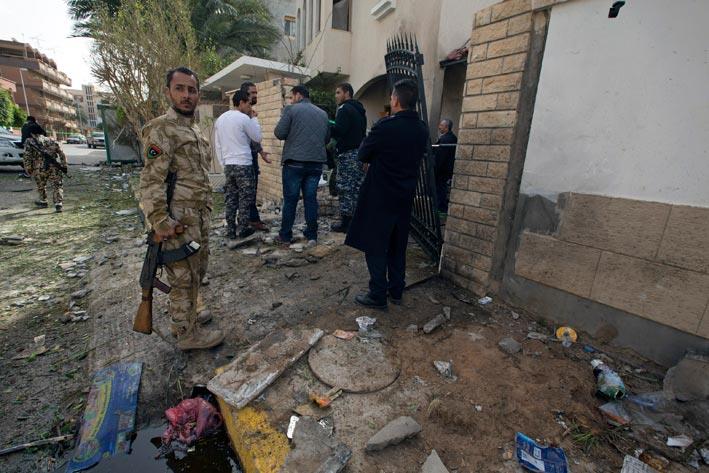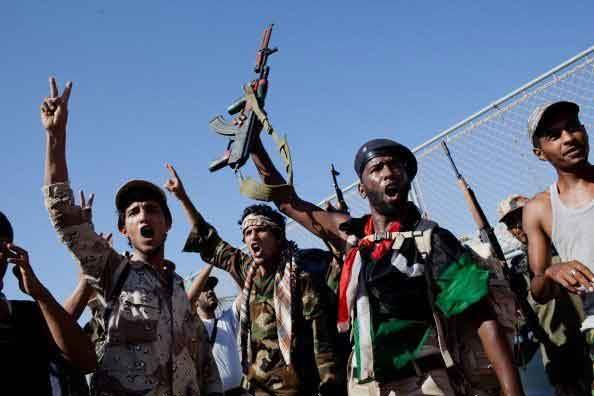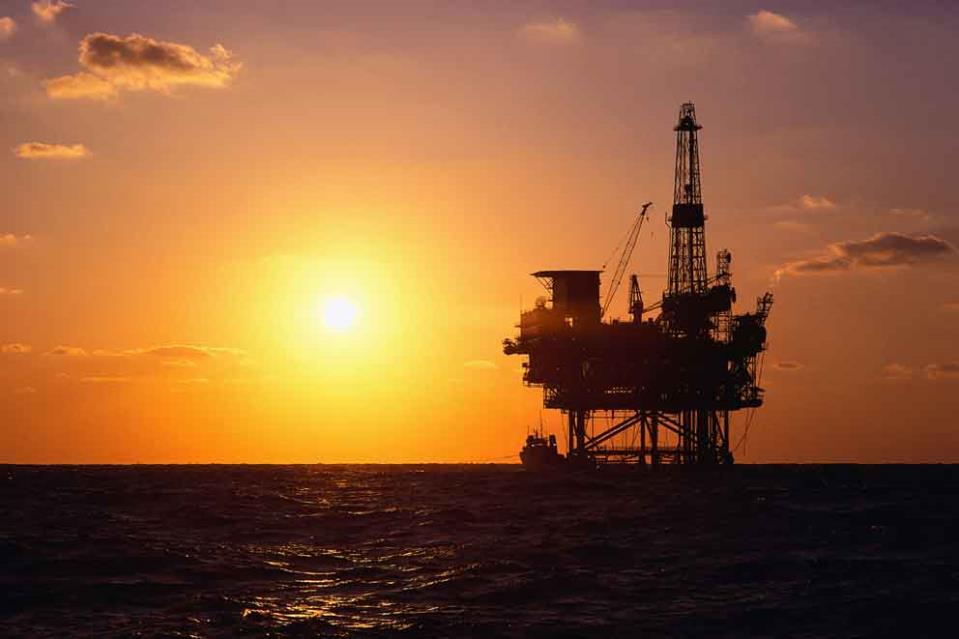Mary Fitzgerald, a journalist and analyst specialising in Libya, refers to Tripoli as experiencing an “abnormal-normal” situation, with day-to-day life on the surface being business as usual, with underlying problematic undertones.
Ms Fitzgerald explained that although people pack cafes and restaurants, and traffic jams are still the order of the day, a real sense of unease underlies the current situation, as well as uncertainty about the future. “The attack on the Corinthia Hotel last month sent a chill through the city.”
Ms Fitzgerald began her career reporting on Northern Ireland. Since then she has worked across the Middle East, Africa and Asia. She spent seven years as the Irish Times foreign affairs correspondent, reporting from more than 40 countries including Egypt, Saudi Arabia, Syria, Lebanon, Iran, Sudan, Somalia, Mali, the Democratic Republic of Congo, Pakistan, Afghanistan and Burma. She has reported from Libya since 2011. Speaking to this newsroom while in Malta, she shed some light on the Libyan situation.
“Islamic State (IS) has a presence in different parts of the country, with its strongest presence in the eastern town of Derna, as well as Gaddafi’s birthplace, Sirte. Late last year a group in Derna pledged allegiance to IS leader Abu Bakr al-Baghdadi. Much of IS claimed territory in Libya is more aspirational than real, however.” IS has also carried out parades in Nofiliya, a small town around 140km away from Sirte. She said that while IS controls sections of Derna, it does not control the entire town, as it is outnumbered by other militant groups which have a tense relationship with IS, as they more inclined towards an al Qaeda type ideology

IS sympathisers present in Tripoli and Benghazi
“Islamic State affiliates have claimed responsibility for killing 21 Egyptian Copts and also attacks on the Corinthia Hotel and diplomatic missions in the capital. While IS has a stronger presence in Derna and Sirte, there are sympathisers claiming affiliation in both Tripoli and Benghazi.”
Ms Fitzgerald spoke of challenges faced by the civilian population. “In Tripoli, as well as elsewhere in Libya, citizens are suffering many privations as a result of the continuing political power struggle. There are lengthy power cuts, fuel shortages, rising food prices and basic goods (including medical) are in short supply.”
Turning to recent UN-facilitated talks aimed at resolving the political crisis, she said that securing a deal will not be easy.
“I don’t think there are any illusions about that. The fact, however, that political opponents have been sitting in a room together is a step forward. Much depends on what will happen when the representatives of the armed groups join the dialogue process. That is certainly the UN’s intention. The bigger and more difficult questions will be addressed when these representatives join the talks”.

Libyans unsure of who could lead a unity government
“During my most recent trip to Libya, I asked a number of people ‘who do you believe could lead a unity government’, and nobody really has an answer to that. Libya is very much divided between East and West and there are growing divisions within communities and even within families. The idea of unity right now is, in the eyes of many Libyans, a very remote prospect. Some Libyans are asking ‘where is our Mandela, where is the figure who could unite a divided and wounded nation?’”
Regarding the threat to the Mediterranean, Ms Fitzgerald said that Libya’s political and security vacuum along with its porous borders and vast ungoverned spaces present a real challenge whether in relation to irregular migration or the rise of militants including IS.
She quoted EU Foreign Policy Chief Federica Mogherini, who said “the EU cannot stay away from Libya as Libya will not stay away from us”.

Oil production slowed to a trickle
Libya’s richest resource, oil, has also been heavily affected by the situation she said. Oil production has slowed to a trickle, “It is down to around 200,000 barrels per day now, which is a fraction of what it was before. Oil infrastructure has been damaged as a result of the violence. A number of attacks have occurred recently, including the Mabruk oilfield where a number of people were killed and a number of workers taken hostage.” She observed that fighting between forces aligned with Libya Dawn based out of Tripoli and those that support the Tobruk government has also caused damage to oil facilities in the Sidra region.
“Many militias have regional and tribal loyalties so you cannot rule out any further attacks on oil infrastructure as a result of the continuing power struggle. There is also the possibility of IS affiliates targeting the oil sector as they did in Syria and Iraq."
Should peace talks prevail, do you believe Western countries would be able to re-invest in Libya or are there too many underlying tensions?
“I think this is a long way off given the extent of the unravelling that has taken place over the past 8 months. People are eyeing Libya with a lot of wariness and a lot of concern that the situation could deteriorate even further"
Discussing the two major factions and the ability of both sides to forgive and move forward was also touched upon. “The poison of polarisation has seeped into Libyan society. It has torn Libya’s social fabric and even divided families. That will leave deep scars and I think this will be difficult to overcome. Libya already faced an array of serious reconciliation challenges related to legacy issues left over from the Gaddafi era and also the 2011 revolution. Over the past eight months, we have seen a whole new range of reconciliation challenges arising from fighting in different parts of the country. I think it’s going to be a very long journey to a wider reconciliation.”